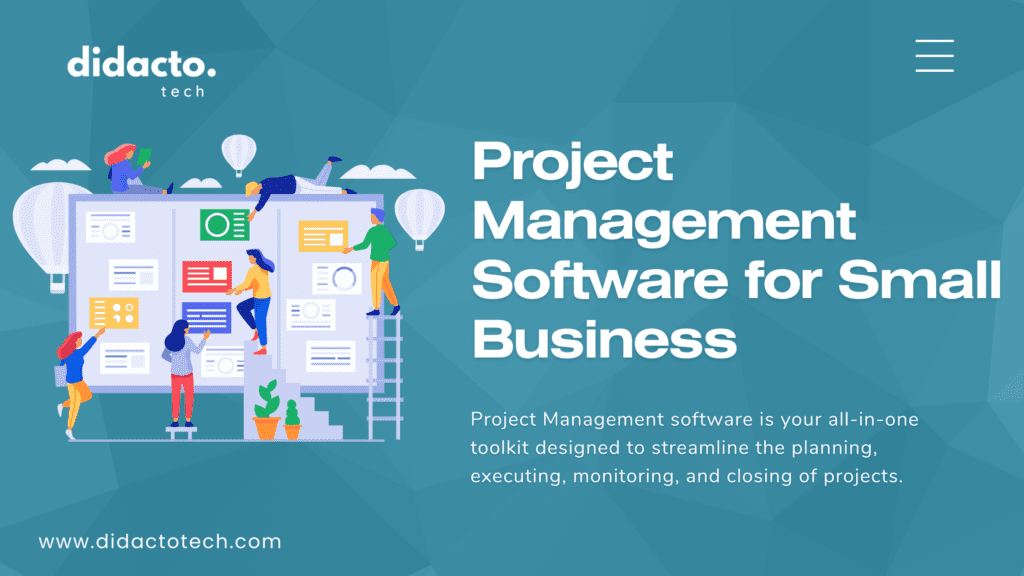Table of Contents
Introduction to Project Management Software
Project management software has positioned itself as a staple in organizations across the world, acting as a foundational element for streamlined communication, improved organization, and enhanced project oversight. Let’s dive into the details and analyze how project management software has evolved to power business success and efficiency.
The Evolution of Project Management Software
Initially, project management was primarily conducted through manual methods like charts, diagrams, and meetings. Over time, project management software has developed, incorporating advanced technologies to enhance collaboration, improve planning, and drive successful project execution.
The Role and Importance of Project Management Software
Today, project management software does more than just manage tasks. It plays a significant role in resource allocation, budget management, and risk identification, among other functions. The importance of these tools can’t be underestimated as they are crucial in ensuring project completion within the set parameters of time, cost, and quality.
Different Types of Project Management Software
There’s a wide range of project management software available in the market. Some options are general-purpose tools suitable for many applications, while others offer specialized functions for particular industries. The three main types include desktop, web-based, and personal project management software, each appealing to different business requirements.
Underlying Principles of Project Management Software
The Philosophy Behind Project Management Software: Guiding Principles
The guiding principles of project management software center around enhancing clarity, encouraging collaboration, and enabling control. These systems aim to simplify complex projects by breaking them down into manageable tasks, with clear timelines and deliverables.
The Functionality and Features of Project Management: What Does It Do?
Project management software goes beyond task tracking. It features resource management, budget planning, time tracking, risk and change management, and even provides insights through reporting and analytics, among other functions.
The Intersection of Project Management and Technology: A Harmony
The integration of technology into project management has revolutionized the domain, pushing projects beyond physical and geographical constraints. From cloud-based software to mobile apps, technology has made project management more efficient and accessible.
Key Features of Project Management Software
Project Scheduling and Task Management Capabilities
These features simplify project planning and help keep track of tasks, improving productivity and effectiveness. They help prioritize tasks, assign resources, and track progress towards goals.
Collaboration and Communication Tools
These tools enable real-time communication, creating the necessary links between team members, stakeholders, and clients to ensure everyone is on the same page regarding project updates and changes.
Reporting and Analytical Tools
Reporting and analytics tools provide insights into ongoing projects, with real-time data on task completion, resource utilization, and project performance, enabling informed decision-making.
Selecting the Right Project Management Software
Assessing Your Business Needs: Tailoring Your Software Choices
Understanding your business requirements is the first step towards choosing a suitable project management software. Your choice should align with your project needs, company size, and industry requirements.
Comparing Different Project Management Software: Criteria to Consider
When comparing options, look for user-friendly interfaces, robust features, software scalability, and affordability. It’s also important to confirm if the software supports integrations with your existing tech stack.
Procuring the Software: Steps and Best Practices
Procuring software involves budgeting, product research, vendor negotiation, and implementation planning. It’s best to involve all stakeholders in this decision-making process to ensure the tool meets all business requirements.
Maximizing the Use of Project Management Software
The Benefits of Effectively Using Project Management Software
By utilizing project management software effectively, companies reap numerous benefits such as streamlined communication, improved productivity, better risk management, and significant cost savings.
Overcoming Challenges in Software Use and Adoption
Challenges like resistance to change and inadequate training might arise during implementation. Effective communication, offering comprehensive training, and demonstrating the benefits of the software can combat these challenges, and ensure successful adoption.
Case Studies of Successful Project Management Software Implementation
Numerous companies across various fields have successfully implemented project management software and witnessed substantial improvements in project delivery time, collaboration, and bottom-line results.
The Future of Project Management Software
Emerging Trends in Project Management Software
Emerging trends like Artificial Intelligence (AI), Machine Learning (ML), big data analytics, and predictive analysis will revolutionize project management practices, driving increased efficiency and forecasting accuracy.
The Role of AI and Machine Learning in Future Project Management
AI and ML can automate task allocation, predict project outcomes, and offer data-driven insights, alleviating much of the manual project management labor and introducing a level of precision certainly beyond human capabilities.
The Impact of Remote Work Culture on Project Management Tools
The shift towards remote work is pushing the demand for project management tools capable of supporting distributed teams, making features such as real-time collaboration, seamless communication, and cloud-based access more important than ever.
Summary: Key Takeaways from the World of Project Management Software
In conclusion, project management software is more than just a tool for managers. It’s an operational powerhouse designed to weave together threads of communication, collaboration, and control, transforming abstract project ideas into tangible results. The integration of advanced technology and AI promises an exciting new chapter in project management, making it even better and more efficient than ever before.
FAQs
-
What is Project Management Software?
A project management software is a dedicated tool used by organizations to coordinate the planning, organizing, and managing of resources and procedures to deliver a project within the defined constraints of scope, time, and cost. This software offers a central hub wherein team members can collaborate effectively, distribute tasks, monitor project progression, and manage any changes or issues that arise.
Typically, project management software encompasses features such as task distribution and scheduling, time tracking, resource allocation, cost estimation, risk assessment, and reporting abilities. -
Where is project management software used?
Project management software finds its application across various sectors. It’s used extensively in the fields of information technology, construction, engineering, and telecommunications, among others. Equally, regardless of the industry domain, if a business handles multiple projects with intricate details and constraints, project management software proves to be a valuable asset.
Companies, both large and small, use these tools to eliminate disarray, standardize procedures, maintain consistency in task execution, and ensure project goals align with business objectives. -
Who needs project management software?
Project Management Software isn’t industry-specific. Any organization, regardless of its size or field, that juggles multiple projects may benefit significantly from using such tools.
Whether you’re a business owner aiming to streamline business processes, a project manager looking to optimize task distribution and control, or a team member wanting more visibility into project details, project management software can simplify your workflow, minimize potential errors, and foster productive collaboration. -
How does Project Management Software differ from other management tools?
While general management tools focus primarily on tasks such as scheduling, tracking, and reporting, project management software encompasses these and a lot more. They cater to the complexities of project planning, task division, resource allocation, risk mitigation, and change management.
Moreover, project management tools offer a more strategic vision, aligning tasks and resources with overall business objectives and facilitating informed decision-making. -
What factors should I consider when choosing a Project Management Software?
Choosing the right project management software rests on a matrix of considerations:
Project Complexity: More complex projects require more comprehensive tools with advanced scheduling, reporting, and resource management capabilities.
Budget: Software cost is an essential factor. However, viewing it as an investment rather than an expense can help realize its long-term ROI.
Ease of Use: Choose software that is intuitive and convenient for your team to use. Training required for software should also be considered.
Integration: Ensure the software can efficiently integrate with other tools you use frequently. -
How can a small business benefit from Project Management Software?
Project management software can support small businesses by:
Enhancing collaboration, allowing team members to communicate, share documents, and update project details in real-time.
Automating processes and workflows, minimizing human errors, and saving time.
Facilitating better financial management with features designed for budgeting and forecasting, ensuring project expenditures stay within limits.
Offering visibility and insight into project performances helping in informed decision-making. -
Does every project team need a Project Management Software?
While the benefits of project management software are numerous, not all project teams may need it. Teams handling relatively straightforward, short-term projects with a small team and few resources might cope perfectly fine without one.
However, for larger projects involving diverse teams, multifaceted tasks, and more substantial stakes, project management software can be a game-changer. It advances task division, communication, scheduling, and much more, making a complicated process simpler, streamlined, and more efficient.



